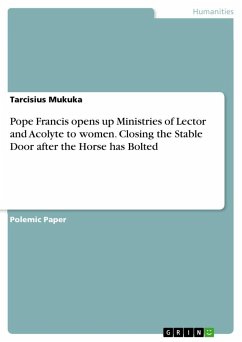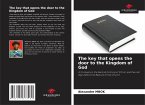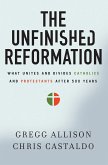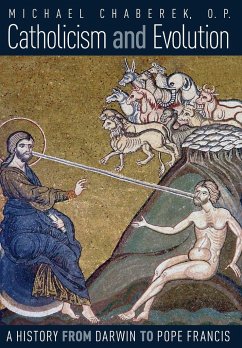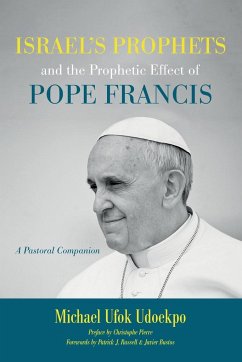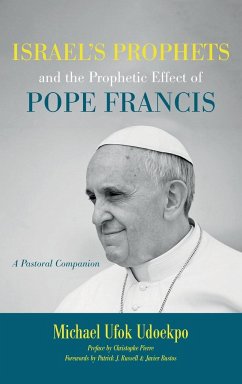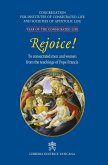Polemic Paper from the year 2021 in the subject Theology - Historic Theology, Ecclesiastical History, grade: 1.0, Kwame Nkrumah University, language: English, abstract: This article examines the significance of the breaking news - at least on 11 January 2021- from the Vatican about Pope Francis modifying Canon 230 §1 of the Code of Canon Law to officially grant women access to the ministries of lector and acolyte. The breaking news, I argue, was not about "Access of Women to the Ministries of Lector and Acolyte" but "Modifying Canon 230 §1 of the Code of Canon Law".This article explores why this is significant and whether ultimately it could lead to the full Monty of the ordination of women to the Catholic diaconate, presbyterate and episcopate. Although coming 62 years too late after the decision by Pope John XXIII on 25 January 1959 to renew the 1917 Code of Canon Law, the recent decision to modify the Code in this regard is a significant step in Bergoglian reforms enabling women what Sacrosanctum Concilium described as "that fully conscious and active participation". With the Apostolic Letter Spiritus Domini and the letter to the Prefect of the Congregation for the Doctrine of the Faith, Pope Francis has effectively opened the door slightly ajar for the ordination of women as deacons, priests and bishops in the Catholic Church.The modification of Canon 230 §1 has chipped at two mountains in the way of female ordination: male-gendered clericalism and patriarchy. In practice though, what has happened is that canonical legislation has just caught up with Sensus Fidelium in many parts of the Catholic Church where women ply their trade as lectors and acolytes or extraordinary ministers of the Eucharist on an equal footing with their women folk.
Hinweis: Dieser Artikel kann nur an eine deutsche Lieferadresse ausgeliefert werden.
Hinweis: Dieser Artikel kann nur an eine deutsche Lieferadresse ausgeliefert werden.

